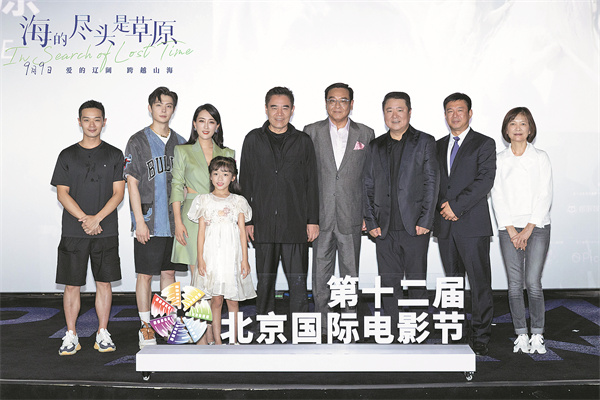

Based on real-life stories, the movie, which was released domestically in early September, revisits a heartbreaking chapter of New China's early history: Thousands of undernourished children from orphanages in Shanghai and surrounding southern provinces were adopted by local herders in the Inner Mongolia autonomous region between the late 1950s and early 1960s.
During this extremely harsh time when most of China's southern regions were stricken by lengthy droughts and severe food shortages, many starving parents, the majority from Zhejiang, Anhui and Jiangsu provinces, left their children — some were even babies or toddlers — at orphanages in Shanghai, hoping the big city would provide them with a better chance of survival.
However, Shanghai was also suffering food shortages. Following the instructions from then-premier Zhou Enlai to Ulanfu, at the time chairman of Inner Mongolia, these children took trains to travel north to Inner Mongolia, where the region's vast grasslands ensured nutritious supplies, such as mutton and milk.
For Ma, a veteran actress from Northeast China's Heilongjiang province, she had known a bit of the historical story from several previous movies and TV series, such as The Silent Aimin River (2000) and Mother (2010).
After confirming and accepting to play the role of an ethnic Mongolian mother in the movie, she quickly started to collect more details from the internet and published materials, besides learning Mongolian, as she was requested to master her 100-plus lines in two weeks.